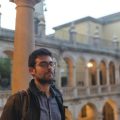The Right to Know and the Duty to Inform: A Lesson from the Italian Experience with Covid-19
23 March 2020
Note: When I drafted this post, the situation in Italy and in many countries around the globe was not as tragic as it is today. Some might worry that the size of the tragedy makes my considerations pointless. Quite to the contrary, I think that the most recent developments of the situation make these considerations even more pressing.
That the recent spread of the coronavirus around the world would have easily led to a new wave of fake news and conspiracy theories comes as no surprise (see here). The topic, this time, is a big incentive for click baiters and promoters of extremist political agendas, as it concerns the health of every single individual, no matter their gender, nationality, social status, profession, political views, etc. It is no accident that the World Health Organization Director-General had warned us about the risks of a coronavirus infodemic as well as a pandemic (see here).
What does surprise and worry me is that this time we are not only hurting ourselves with fake news and misinformation of all sorts, but also with the way governors, scientists, and media professionals are managing and distributing the information they acquire. Undoubtedly, immediate and free access to information is one of the most important conquests of our times. Moreover, transparency and readiness to share information with citizens are just to be expected from any institution and press agency in a democratic setting. Citizens have a right to know. And institutions have a duty to inform.
Yet, my impression is that this time we have got these values wrong. The problem that I want to identify lies in our understanding of what the right to know and the duty to inform amount to in a practical sense. We have become accustomed to thinking that we deserve to be informed of any minimal, marginal, or tentative development of relevant issues and, conversely, that institutional bodies and the media owe us constant updates. Not just daily updates, but hourly if not quicker than that. While this might work well in some contexts (e.g. sports or political elections), it can have harmful effects in other circumstances: for example, in situations characterized by a high level of uncertainty and pressure even on those who are most prepared to handle large-scale threats.
Consider, as an example, the reactions of the Italian institutions and the press to the early phases of the outbreak of Covid-19 in the North of the country. Italian governors have managed to contradict themselves in a span shorter than a week, retracting hasty statements about the coronavirus (see here) and their own fresh accusations to the medical conduct of specific hospitals (see here). Scientists have abused their sudden peak of popularity and made use of the media and social networks to express harsh comments about each other’s scientific take on the virus (see here). And the media keep hunting for medical doctors of any sort to pile up new expert opinions rather than sticking to official statements and press conferences of the designated institutional consultants. In the best scenario, they are just doing their best to inform the public. (You may judge for yourselves how naïve this charitable reading is.) Worse scenarios are those in which the press just seeks for stuff to throw in the fray and improve their visibility, with no regard for the effects that (alleged) cases of disagreement among experts may have on the general audience.
If we thought that feeding citizens with constant updates was a way to maintain control of the situation, we got this very wrong. One reason why this approach has already proven disastrous is that it forces those who should provide us with information to say more than they should, thereby losing clarity of mind and letting their opinions (often premature, thus unreliable) gain the upper hand. When this happens, collective hysteria is just behind the corner: in this recent Italian case, some of its effects include raids to the grocery stores to stock up food supplies, sudden shortage of face masks, and the release of inconsistent regional measures to contain the spread of the virus.
To be clear: it’s not as though in such critical times we should then stop informing the citizens about something that directly affects their health, everyday lives, and financial resources—or, worse, release false news to ensure that the population behaves as the governors wish. That happens in countries like Venezuela, unfortunately, where the government limits press freedom by handing over to the press only the information that they want to be distributed and threatens reporters, buys newspapers or make them close. All this to reduce the risks that information about the real conditions of the country is revealed (see here). Such limitations to the right to know and the duty (here, also the right) to inform classify the Venezuela case as an example of political censorship, which is in overt contrast with the values of our democracies.
But transparency and immediate access to information can become a problem for more mature democracies too, in particularly shaky situations. Not because they cease to be epistemic values, but because they expose our imperfect and fragile rationality to serious risks, especially when the decision-making capacities of all citizens are already under pressure. What can be done to mitigate these risks?
No doubt this is a complex question. Any plausible solution ought to take into consideration that authority comes with an amount of epistemic responsibility. Here it seems as though epistemic responsibility mandates that, in critical situations, people in charge do their best to maintain a united voice, even when this might sacrifice a bit their desire to hit the headlines. And that the media refrain from collecting as many opinionated views as they can on the matter, if this could exaggerate small-scale cases of expert disagreement. Because scattered opinions, disagreement among experts or institutions, and an unregimented flow of information can generate irrational reactions, thereby harming the citizens’ epistemic and practical wellbeing.
Cultivating and exercising the intellectual virtues can constitute a further mitigating element. I have no miracle list to offer here, as it is plausible that each professional role calls for its own specific set of virtues. The virtues of mental flexibility (e.g., imaginativeness, open-mindedness, and adaptability) and practical wisdom seem particularly important in high-pressure circumstances, in that governors, scientists, and the media professionals have to take prompt decisions but factor-in a wide variety of considerations. So does epistemic conscientiousness, as it helps us keep in mind our epistemic rights and responsibilities towards the epistemic welfare of our communities. But what is really crucial is the fact that the intellectual virtues involve a motivational component, namely a concern or desire for knowing and understanding, which steers one’s conduct toward the epistemic good. And it looks like approaching informationally complex circumstances with the appropriate intellectual motivation would concretely help our authorities to make wise decisions. Luckily for us, the intellectual virtues can be trained, and false steps are indeed an effective prompt to improve, if one is honest and serious enough to learn from them.
In sum, the right to know and the duty to inform are pillars of our democratic societies, but they have a limit beyond which a constant demand and offer of information can become detrimental to our epistemic wellbeing. When serious issues such as a pandemic threaten us, a bit more concern with the risks of abusing the right to know and misusing the duty to inform looks like a responsible choice. One that we wish our institutions, scientists, and the media will always make.
Image: “information overload las vegas” by andy lapham from Flickr CC-BY-NC-ND.2.0
Comments
1 comment
Comments are closed.
- October 2025
- September 2025
- August 2025
- July 2025
- June 2025
- May 2025
- April 2025
- March 2025
- February 2025
- January 2025
- December 2024
- November 2024
- October 2024
- September 2024
- August 2024
- July 2024
- June 2024
- May 2024
- April 2024
- March 2024
- February 2024
- January 2024
- December 2023
- November 2023
- October 2023
- September 2023
- August 2023
- July 2023
- June 2023
- May 2023
- April 2023
- March 2023
- February 2023
- January 2023
- December 2022
- November 2022
- October 2022
- September 2022
- August 2022
- July 2022
- June 2022
- May 2022
- April 2022
- March 2022
- February 2022
- January 2022
- December 2021
- November 2021
- October 2021
- September 2021
- August 2021
- July 2021
- June 2021
- May 2021
- April 2021
- March 2021
- February 2021
- January 2021
- December 2020
- November 2020
- October 2020
- September 2020
- August 2020
- July 2020
- June 2020
- May 2020
- April 2020
- March 2020
- February 2020
- January 2020
- December 2019
- November 2019
- October 2019
- September 2019
- August 2019
- July 2019
- June 2019
- May 2019
- April 2019
- March 2019
- February 2019
- January 2019
- December 2018
- November 2018
- October 2018
- September 2018
- August 2018
- July 2018
- June 2018
- May 2018
- April 2018
- March 2018
- February 2018
- January 2018
- December 2017
- November 2017
- October 2017
- September 2017
- August 2017
- July 2017
- June 2017
- May 2017


Very interesting article, I agree on pretty much everything, but there is something about the early months of pandemic outbreak that was not fully taken into account. Italian govern was allegedly covering in collusion with the WHO Italian representatives the fact that the national pandemic plan was not up to date since 2006. This created even more confusion in statements from the government. All the facts still need to be proven. But the plan was not there when needed, that is a fact.